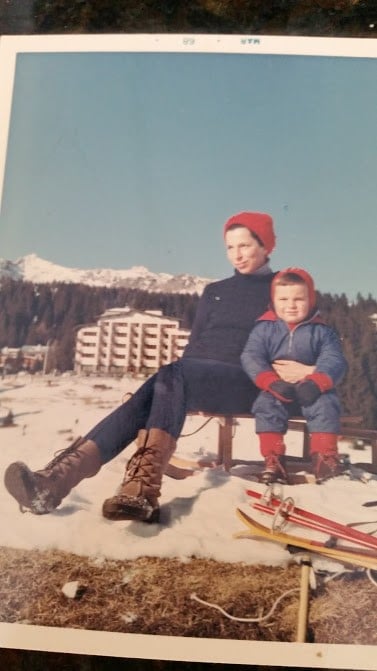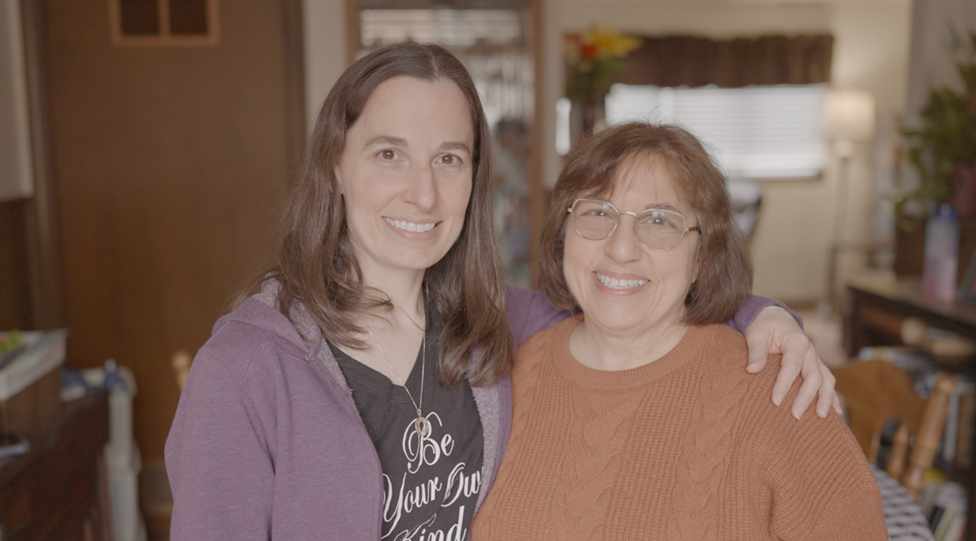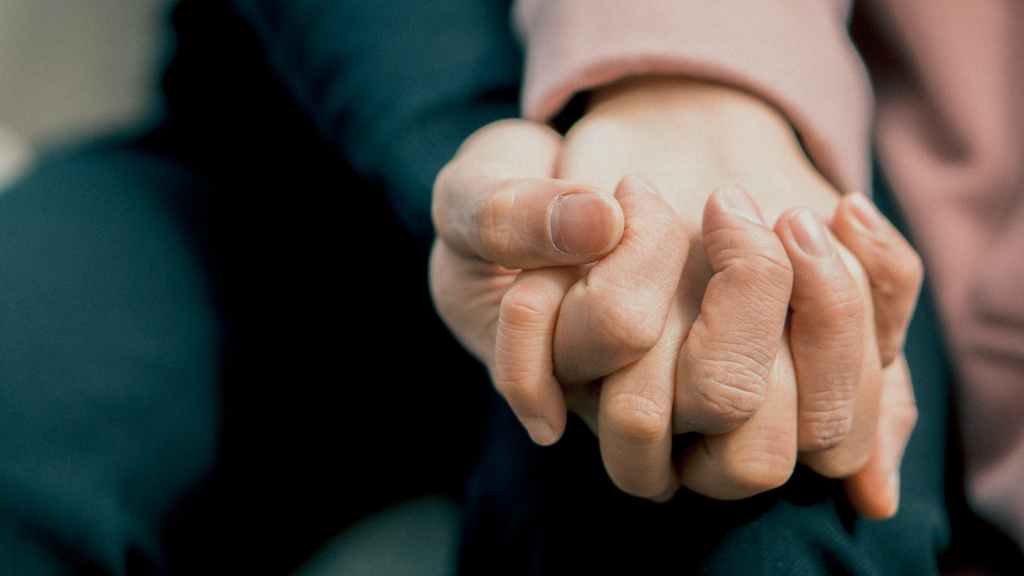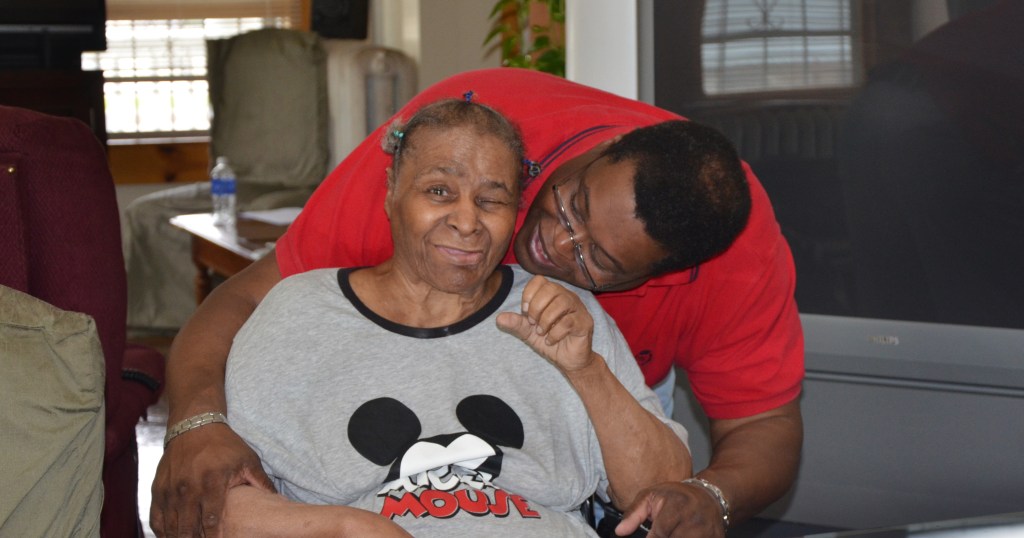
Taking care of mom
Sipping coffee early this morning, I watch my 84-year-old mother eating a piece of toast with butter. Her left hand shakes softly, she’s focused on the buttery corner, crunchy and warm, careful to not drop unnecessary crumbs. Lidia is always extra careful with crumbs; the house must remain clean!
I ask myself a question that has occurred to me several times, “how did I get here?” I mean, how did I, of all people, become her caregiver? Existential thoughts flow, such as: how did this person from Northern Italy, who saw the Germans retreat during WWII, end up in South Florida by herself? She seems most concerned with what can be prepared for lunch, what’s for dinner several days from now, and some haphazard branches that need trimming on the outside patio.
Health is an interesting dynamic, a prism of factors, some poorly understood, especially at this age. Lidia appears to be in good health and of sound mind–she remains sharp and engaging– but any time spent with her reveals a deep fragility within. Everyday things are laborious: little things like getting up from a chair, opening a package, or unlocking a door. With weighted breath, she sighs again. To spend meaningful time with an elderly person is to come to grips with devolving quality of life.
I’ve taken a leave of absence from work and relocated here to help her. The tropical climate soothes me; the palm trees caress my soul in ways I could not have anticipated. I’m fully aware that this journey is also to care for myself, as there is always learning and the potential for serenity in a new journey. People tell me “you are such a good son for helping your mom.” I accept their remarks in silence; the truth is for the longest time I’ve not been a model son. Far from it. During the earlier part of my career, my ‘workaholic’ years, I largely ignored her. For years I would call only once in awhile, despite her frustration that we speak more often.
Loneliness is a dark shadow encroaching, always nearer, silent but impenetrable. Her circle of friends continues to reduce its circumference, sadly. Lidia always deeply valued her friends, ladies from various entourages: Martha’s Vineyard, where she lived for some time, the crochet club, Italy, and various former neighborhoods. Like her, most of these women were wives, moms, and grandmothers; they traveled the world and lived life fully. Slowly they vanish. Just like that, one day a friend is no longer there — they are nowhere. “Anna can no longer take my calls,” Lidia says a few weeks back. This was a friend of many decades who I had met many times. An elegant and deeply intelligent woman from Torino, she had an infectious deep laugh. “What do you mean she cannot take your call?” I asked. She explains that her friend has developed dementia and phone calls with her have become impossible as a result. She is no longer there; a dear friend is gone, just like that.
It appears that with old age comes an appetite for minutiae, at least in this case. Lidia worries less about falling or some health scare than she does about whether or not the coffee machine was left on. With each passing year, this dichotomy expands to comical proportions. I used a less-than-ideal plate for the risotto; someone yesterday was driving around with a low tire; the landscaper left the top of a shrub slightly uneven. The top of a shrub, a branch is left untrimmed! What if any one of us knew that we had only a few years left, would we become obsessed with minutiae as well? What a frightening prospect! I tell mom, relax, enjoy things and forget about “stupid little things” that “don’t matter.” This line of reasoning makes her unhappy, of course. I suppose that focusing on little things helps keep the mind off of big concerns, especially health related.
Another thing I can’t help but be amazed by is her propensity and appetite for planning, for plans of plans, for any sort of plan no matter how trivial. “What will we eat tomorrow for lunch besides the frittata?” she asks, the furthest thing from my mind as I noodle on some technical idea. A local friend cancels a dinner date and this throws her off her axis as though she were being asked to evacuate. I arrive this morning to see her waiting on the patio exclaiming “you promised me last week you would trim this tree, as you can see it’s growing out of control.” After I trim 7 or 8 small outgrowths from this small tropical plant, she is happy, but points out “I had to remind you.” I cannot convince her to not bother “cleaning out” her email, I try pointing out that deleted emails “are still there.” She insists “I need to keep things in order you know” — in Italian, “devo tenere le cose in ordine sai” has a somewhat more authoritative tone.
Caregiving is something most people are touched by from a distance, but very few are able to do. Really. When Lidia, last year, had hip replacement surgery, I was here for three weeks to help her. She went from hospital to rehab center back to hospital (pulmonary embolism!) back to rehab center and then home. As I walked through the rehab center, most residents were elderly and many were utterly alone. A woman in her 80’s sat in a wheelchair staring at the ceiling outside her room. An elderly man in his room talked to himself over the television. As the Haitian nurse gave mom her lunch and made her smile by speaking French, I reflected on the scene there. This was a “well-to-do” rehab center near Palm Beach, Florida. After a few days, one couldn’t help but to be stunned by the loneliness and sadness of most people there.
I’ve come to believe that the uncared for elderly don’t lack family as much as they lack family members who are able to help them. A visit once in a while or a phone call, that’s one thing, but daily visits and company, that’s a whole other thing. This is reality and it must be faced. What makes a capable family caregiver? I’m not exactly sure yet. Some would jump at that question with “compassion”, and “patience,” but most who answer haven’t really experienced it. I would posit that it involves a deep and grounded sense of empathy, from which things like patience and compassion may surface but are soundly tested on a regular basis. There’s no shame or guilt in admitting that such a job is beyond me; there are many challenges I’m unable to sustain, and this one is formidable. Empathy is elemental to this work, each day.
One day at a time. This has become my rallying cry.
The human body is just not built to live to 90 and beyond, not even if one is living ‘carefully’ and is lucky. Care for the elderly is, with the ‘baby boomer’ population, one of the most pressing matters in this country, both financially and morally. Family caregivers are a huge part of the answer, however I fear too few are able to rise to this challenge. Those that try need help and support, they need guidance and the ability to take care of themselves along the way. I cannot imagine the work of a caregiver for a patient with Alzheimer’s, dementia, or another degenerative disease. The emotional and psychological toll this presents to family members is unimaginable. If one in 20 family caregivers are capable of this sort of work (I’m just guessing on this ratio), perhaps this can be increased to 1 in 3 with proper support structures. Whatever the statistics, supporting caregivers will increasingly be crucial and highly leveraged.
On most days I’m uncertain of my own ability to help, to remain positive and optimistic. There’s the occasional sobering gut-check: “if I don’t care for her, who will?” On some days I go for a walk as mom is temporarily unbearable. I think “how ungrateful can she be?” or “why is she so stubborn?” I remind myself that her situation could be much worse. As cliché as it may be, when we were small children we too were these things. The old revert back to the physical and emotional limitations of the very young, it’s so true — and so ironic.
How did I get here? The question ricochets again. I’m here, as it turns out, lucky to have a chance to redeem myself as a son. How strange this notion might have felt years prior when I was focused on career goals, on making money, on entrepreneurial vigor. Those were selfish times, I can see clearly now. Is this journey ultimately as much about my own wellbeing as hers? Time will tell; it always does.
GK
Technologist, Investor, Explorer, Caregiver.


